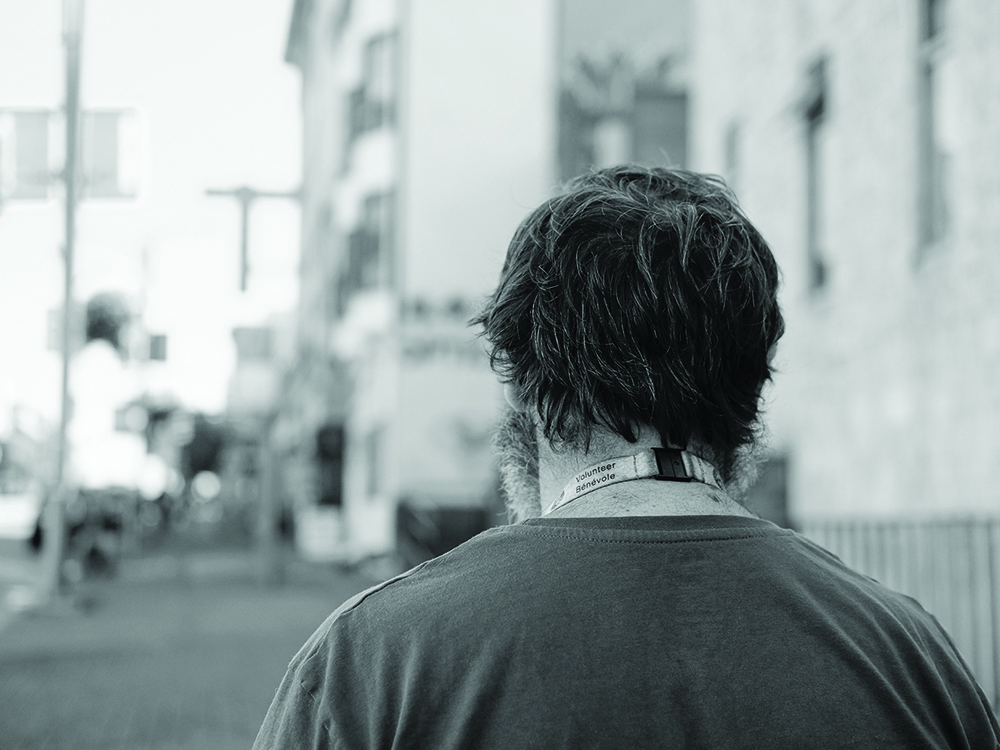First United is calling on Vancouver’s new municipal government to do its part to address the affordable housing crisis. The Downtown Eastside-based charity has been responding to the day-to-day needs of neighbourhood residents for over 135 years by providing essential services like meals, shelter, harm reduction and crisis response.
Now, it’s also setting its sights on ensuring people don’t find themselves without housing.
“We’ll always be committed to meeting the urgent needs of our community, those who are low-income and experiencing poverty, trauma and addiction, no matter what. But we need to start looking at upstream solutions, too,” said Amanda Burrows, First United’s interim executive director.
This upstream work includes tackling one of the most pressing issues facing residents today: affordable, safe and secure housing. The team at First United has recently launched a public petition calling on Mayor Ken Sim and Vancouver’s new city council to urgently prioritize the creation of affordable housing including below-market rate housing, supportive housing, rent-geared-to income units and more.
“First United has been a frontline service provider for over a century and we know that appropriate housing is a crucial part of keeping people safe, alive and socially included,” said Burrows.
First United’s goal is to have 500 people sign the petition, which will be submitted to Mayor Sim on Jan. 4, 2023.
First United is also doing its homework to gather hard evidence on the impacts of the housing crisis. Earlier in the year, it launched an innovative eviction survey and mapping project — the first of its kind in British Columbia. That survey, which has over 300 respondents so far, aims to understand the impacts of residential evictions in the context of B.C.’s housing crisis.
The project is led by director of systems change and legal advocacy Sarah Marsden, who says that “eviction can lead to homelessness, displacement, financial stress, family separation and negative health outcomes, as well as specific risks to Indigenous people and other groups.” Marsden hopes to receive 500 survey responses by mid-January. The data generated will be plotted onto interactive maps so the public and lawmakers can see precisely where evictions are happening in B.C., to who, and why.
The next phase of the eviction mapping project will lead to law reform recommendations that better protect renters in B.C., and, ideally, could be a template to use in other jurisdictions.
First United’s legal advocacy program has been providing free legal support to low-income individuals for nearly 50 years. The majority of cases it works on are related to tenancy issues, and the number of those cases is growing. As a registered charity, the organization relies on donations from individual donors to ensure it can continue to meet the increasing demand for its services.
Until Dec. 31, First United is running a matching campaign in which all donations to its programs and services will be matched, dollar-for-dollar, up to $219,000.
“We see homelessness and displacement as major factors keeping residents in the community trapped in a cycle of poverty. We need bold action from the public, community leaders, business partners and all levels of government,” said Burrows.
First United’s commitment to safe, affordable and secure housing is also evidenced by the redevelopment of its building at 320 E. Hastings. In addition to universally accessible and expanded space for its core services, First United has partnered with Lu’ma Native Housing Society to enable the on-site development of 103 units of below-market housing for Indigenous peoples living in the Downtown Eastside, where 30 to 40 per cent of residents self-identify as Indigenous.
Recently, city council passed a motion to allow for a higher density of co-op, non-profit and non-market housing and 12-storey rental housing in zoning districts previously approved for six-storey buildings. The city is also working with the province to build 90 units of modular housing. These are welcome steps in the right direction.
“We’re really pleased to see our new and returning elected officials already taking steps to improve conditions for those who are vulnerable and need realistic housing options,” said Burrows. “But it can’t stop there. We want to work together to find solutions to the affordable housing crisis. We need the city and members of the public to join us in that.”
The petition can be signed until Dec. 31. First United is asking Vancouverites to add their names to the call for affordable housing options today. First United will gather all the signatures and send the full petition to municipal leadership on Jan. 4, 2023.
About First United
First United serves low-income, under-housed and homeless individuals living in Vancouver’s Downtown Eastside. Their inclusive, low-barrier programs provide essential services, advocacy, community connection and healing in Vancouver’s Downtown Eastside.
First United is asking Vancouverites to add their names to the call for affordable housing options today. ![]()
Read more: Housing
This article is part of a Tyee Presents initiative. Tyee Presents is the special sponsored content section within The Tyee where we highlight contests, events and other initiatives that are either put on by us or by our select partners. The Tyee does not and cannot vouch for or endorse products advertised on The Tyee. We choose our partners carefully and consciously, to fit with The Tyee’s reputation as B.C.’s Home for News, Culture and Solutions. Learn more about Tyee Presents here.

















Tyee Commenting Guidelines
Comments that violate guidelines risk being deleted, and violations may result in a temporary or permanent user ban. Maintain the spirit of good conversation to stay in the discussion.
*Please note The Tyee is not a forum for spreading misinformation about COVID-19, denying its existence or minimizing its risk to public health.
Do:
Do not: